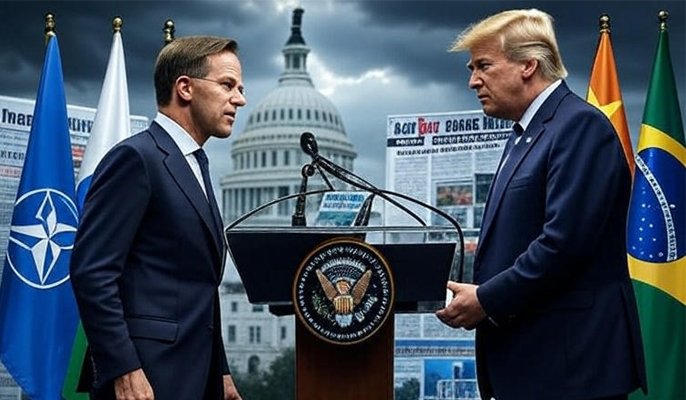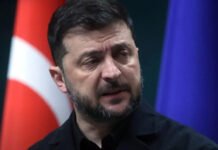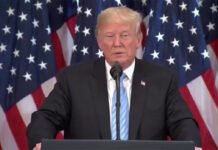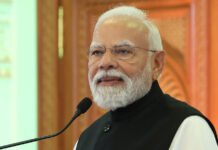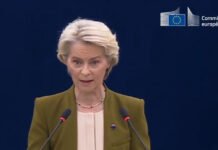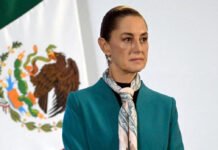In a dramatic turn of global diplomacy, NATO Secretary General Mark Rutte issued a stern warning to major economic powers including India, China, and Brazil, cautioning them of possible secondary sanctions if they persist in their economic engagements with Russia. His remarks came just a day after U.S. President Donald Trump threatened a 100% tariff on buyers of Russian exports should a peace agreement with Ukraine not materialize within 50 days.
Trump’s Ultimatum: 50 Days to Peace or Punitive Tariffs
Addressing lawmakers in Washington, President Trump declared that if Russia and Ukraine fail to strike a peace deal within 50 days, the United States will impose a sweeping 100% tariff on all buyers of Russian goods. This strategy, he emphasized, is designed to economically isolate Moscow and force a return to serious peace talks. Trump’s latest policy escalation coincided with the announcement of a major arms package to Ukraine, involving missiles, air defense systems, and ammunition, largely underwritten by Europe and deployed with U.S. logistical support.
Rutte’s Direct Message to Delhi, Beijing, and Brasília
During a high-stakes meeting with U.S. senators, Mark Rutte strongly echoed Trump’s stance, offering a blunt message to the governments of India, China, and Brazil.
“If you live in Beijing, or are sitting in Delhi, or the President of Brazil, you must understand that this could hit your economy very hard,” Rutte warned. “You should seriously consider calling President Vladimir Putin and urging him to return to the negotiating table, because the consequences could be severe.”
By highlighting the economic interdependence of these nations with Russia, Rutte signaled that neutrality or nonalignment might no longer insulate them from the expanding economic warfront between the West and Russia.
Secondary Sanctions: A Looming Threat for Global Trade
Secondary sanctions are designed to target third-party countries and companies doing business with a sanctioned entity. In this context, the U.S. and NATO are prepared to enforce measures that could disrupt trade, freeze assets, and isolate economies of countries found to be sustaining Russia’s war economy.
For India, which has steadily increased its crude oil imports from Russia, the implications could be profound. China’s energy ties and technological partnerships with Moscow are also in focus, while Brazil’s agricultural and defense sectors could suffer disruptions if Washington’s sanctions move forward.
Global Implications: Diplomatic Pressure on the BRICS Bloc
Rutte’s pointed remarks reflect growing frustration among NATO members over the non-aligned posture of BRICS nations—Brazil, Russia, India, China, and South Africa—amid the ongoing war. With BRICS expanding and considering the addition of new members, the West is increasingly wary of a rising multipolar order that enables Russia to circumvent Western sanctions.
While BRICS nations have so far avoided taking sides overtly, the latest U.S. move is meant to force a diplomatic recalibration. By targeting economic vulnerabilities and leveraging the dominance of the U.S. dollar, Washington hopes to push these countries toward pressuring Moscow directly.
U.S.-Europe Unified Front: Massive Arms Support for Ukraine
During his visit to Washington, Rutte and Trump finalized an agreement to scale up weapons supplies to Ukraine. According to NATO’s top official, the United States will deliver advanced air defense systems, long-range missiles, and lethal ammunition stockpiles in the coming weeks. The initiative, backed by European financing, aims to shift the battlefield dynamics and empower Kyiv ahead of any potential negotiation.
“This is not just about air defense; it’s about giving Ukraine a strategic advantage,” said Rutte. “Our goal is to put Ukraine in the strongest position possible before entering peace talks.”
Rutte emphasized that discussions around long-range offensive capabilities are still in the early phases, with the Pentagon, Allied Command in Europe, and Ukrainian defense officials currently refining strategic frameworks.
Senate Support With Caveats: 50-Day Delay Raises Alarms
While President Trump’s announcement received broad praise from Republican lawmakers, concerns have been raised about the 50-day window before enforcement. Senator Thom Tillis, a Republican from North Carolina, warned that Russia could exploit the delay to solidify gains or escalate violence.
“Fifty days could be more than enough time for Putin to launch a renewed offensive, conduct atrocities, and reconfigure territorial control to strengthen his hand during future negotiations,” said Tillis. “We must be cautious that this timeline doesn’t become a gift to the Kremlin.”
India’s Dilemma: Between Strategic Autonomy and Western Pressure
India’s relationship with Russia remains rooted in historic defense ties, energy interests, and geopolitical strategy. However, with growing military and trade partnerships with the United States, New Delhi now faces increasing pressure to distance itself from Moscow.
If Washington moves forward with secondary sanctions, Indian refiners, banks, and defense suppliers could find themselves in a diplomatic and financial crossfire. Rutte’s comments are a warning that the era of ambiguous neutrality may be ending.
China’s Calculated Risk: Standing by Moscow Amid Western Isolation
China has long positioned itself as a mediator in global conflicts, but its deepening trade and energy ties with Russia undermine this stance. While Beijing has called for peace, its failure to condemn Russia’s invasion, and its continued technology transfers and purchases of Russian commodities, have drawn harsh scrutiny from the West.
If secondary sanctions are implemented, China could face financial transaction blocks, export control restrictions, and currency repatriation hurdles, which would severely disrupt its global trade architecture.
Brazil’s Vulnerability: Export-Oriented Sectors at Risk
Brazil’s economic links to Russia may not be as deep as India’s or China’s, but agricultural trade, fertilizer imports, and defense procurement could become key pressure points. With the country navigating internal political divisions and external economic shocks, a U.S.-led sanctions wave could destabilize key sectors in Latin America’s largest economy.
President Trump and Mark Rutte are now sending a clear message: standing on the sidelines is no longer an option.
Conclusion: A Fork in the Road for Global Powers
The events of this week underscore a sharp shift in Western strategy. By threatening massive economic penalties not just against Russia, but against its global trade partners, the United States and NATO have expanded the battlefield into economic and diplomatic territory.
As Rutte plainly stated, the choice is now clear for India, China, and Brazil: side with the West and promote peace, or face severe economic consequences that could shake their financial foundations.
The coming 50 days are not just critical for Ukraine and Russia—they will define the diplomatic trajectory of entire continents. As the world watches, the urgency for a global resolution grows more acute by the day.

